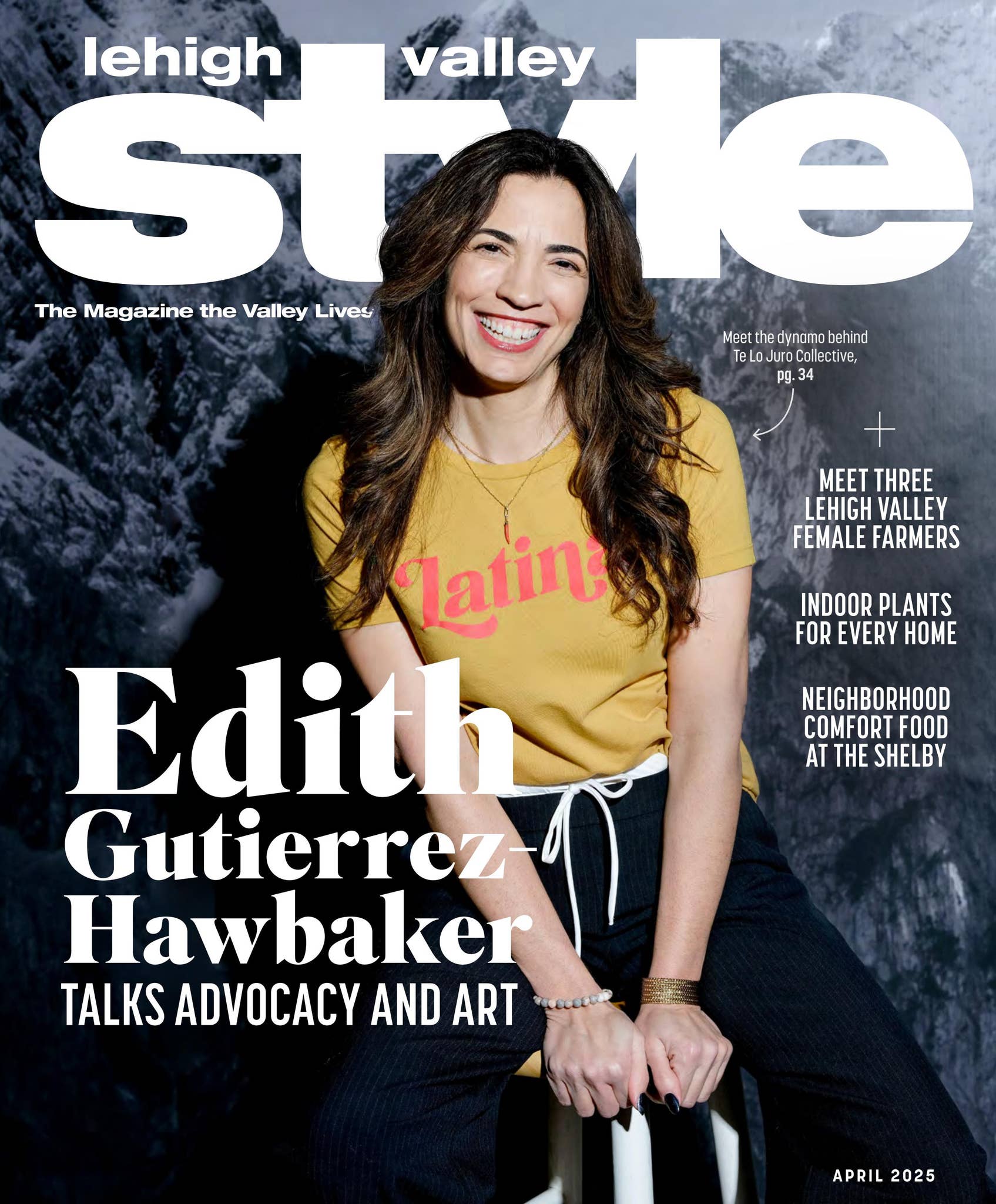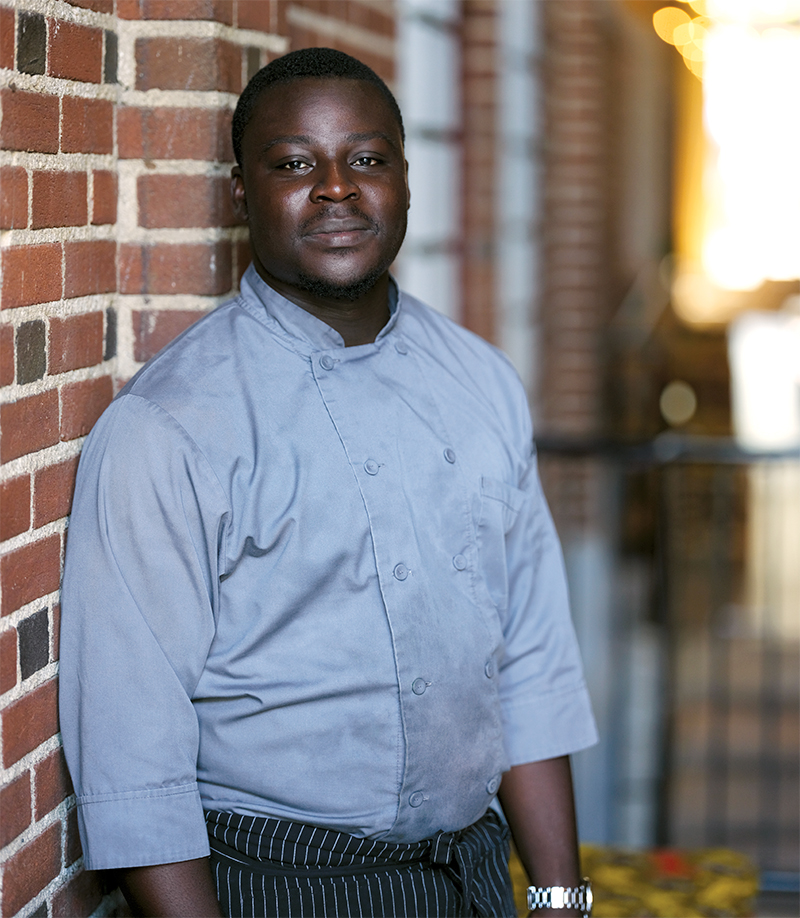
When you are the first person in a region to open up a restaurant with a particular type of cuisine that's brand-new in said region, you've definitely got your work cut out for you.
Such is the case with Coal, which boasts a prime location a couple doors down from the likes of Apollo Grill and across the street from Edge in Downtown Bethlehem. This month, Coal celebrates its one-year anniversary. It also happens to be the first spot around these parts to serve food that you'd typically find in Ghana.
It's unusual not only for its culinary offerings, which we'll get to in a minute, but the specific vibe that's established as soon as you walk in. The interior is marked by low-slung tables made from pallets and glass tops, flanked on either side by cushy couches and moveable ottomans that double as seats. The modular seating allows for people to expand and contract their dining groups, which makes a lot of sense, because Coal is about socializing and eating and hanging out. Coal bills itself as a lounge, but it honestly feels more like a living room. And that's by design, according to co-owner Kofi Armah, who runs the shop with his partner, Jomana Hanna.
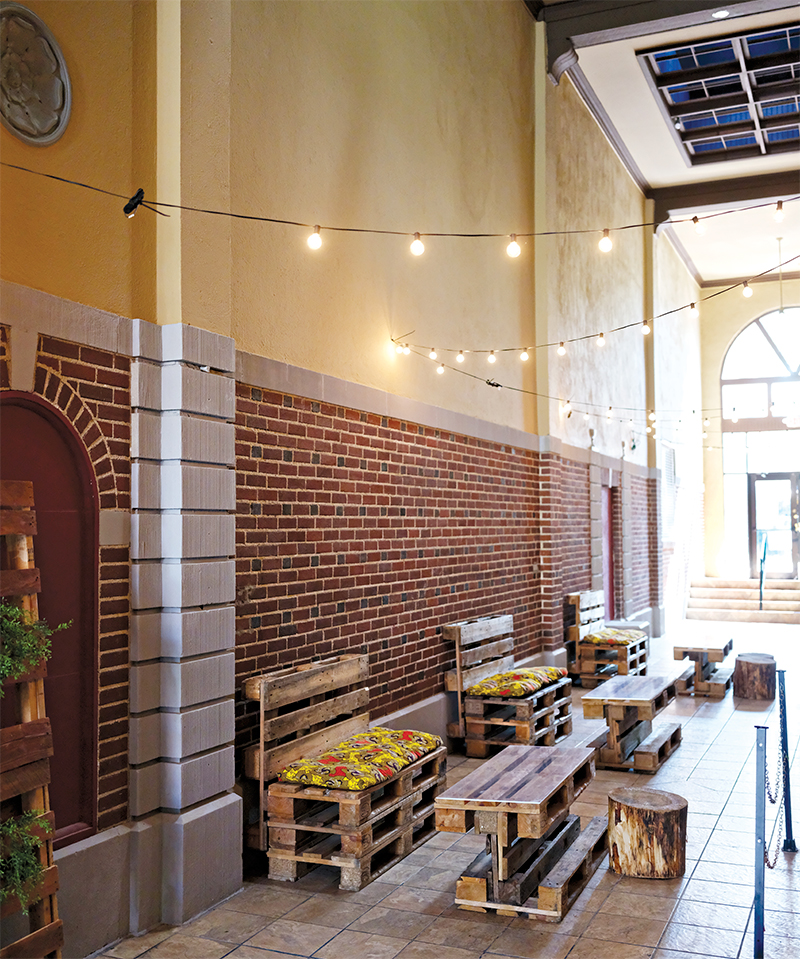
“It's like coming into my house,” says Armah. (And to his point—there's a vestibule-turned-dining area that is directly adjacent to Coal, through glass doors. If you sit out there, you can “smoke hookah,” he says.)
Armah is originally from Ghana and has spent time living both there and here in the Lehigh Valley (he attended Moravian College and Montclair State University). He grew up with his “bachelor uncle,” who would either give him $5 for dinner or to buy fast food. Armah figured out that it was cheaper to feed himself by cooking, and it often tasted better, too. He grew tired of “outside food,” the Ghanaian term for any food that's not home cooking.
Armah always wanted to own a restaurant—but he also wants to be an orthopedic surgeon—and at the age of 27 he's already started and sold a business similar to Uber Eats. He operated that business while he was a student at Montclair State, and worked at the Hotel Bethlehem as a food runner, too. “I liked everything about those jobs, even when they drove me crazy,” he says, laughing.
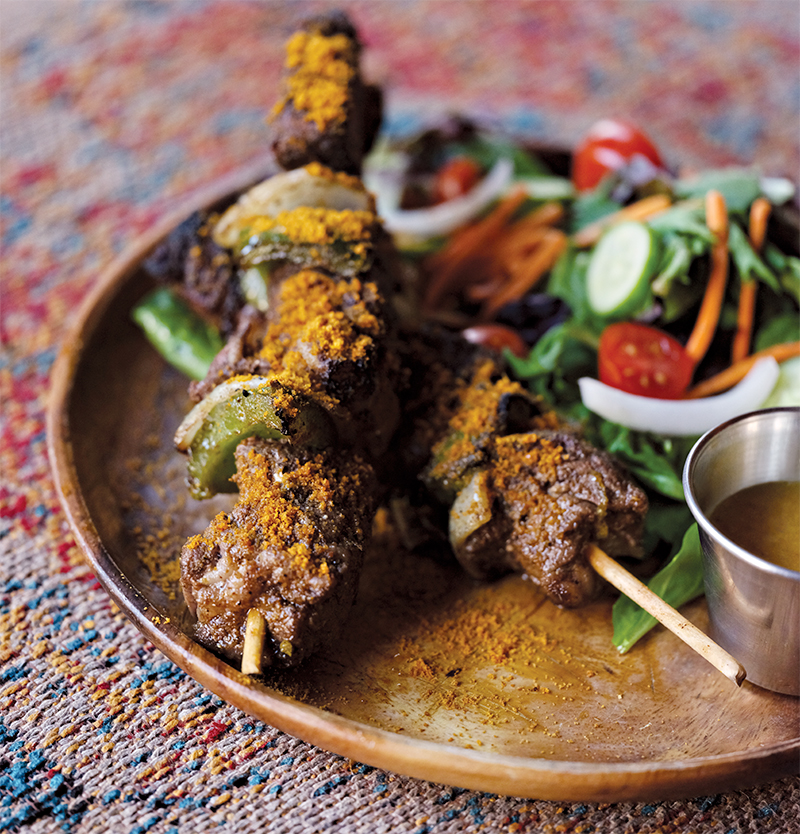
There's something really refreshing about walking into a restaurant and knowing very little about a cuisine and, therefore, not having any expectations whatsoever. I am speaking as a Westerner, even one with culinary experience, but I approached Coal with a mostly blank slate expecting peanuts, spicy food and lots of rice. (In general, most Americans are more familiar with the food of the Northern Rim of Africa or, say, Ethiopian food.) “A lot of my African diners and most of my Ghanaian diners would expect my food to be spicy, but others might not, or might not know what to expect,” he explains.
Regardless of whether you are well versed in Ghanaian cuisine or West African food more broadly, once you sit down at Coal and start eating, you will see that things feel more familiar than not. And that's no accident.
We can't really talk about whether something is authentic, per se, because his version of authentic Ghanaian food might be somewhat different from someone else's experience. This is the beauty of food. It's neither “authentic” nor “traditional”
in the sense that you're eating the exact same food you would eat there. It's adapted from foods Armah ate growing up, street foods that are popular in Ghana and other parts of Africa (like ramen noodles given the African treatment—order Indomie!) and foods that make sense within the context of an American dining environment. Armah bills it as “authentic contemporary West African fusion cuisine.” Whatever you order, it's made from scratch, which enables a certain level of customization.
The menu includes foods that he initially wanted to cook over a charcoal grill, but alas, it wasn't permitted. Fortunately, the name Coal is short and sweet and still works. If West African fare is all new to you, the types of spices and seasonings that dominate this cuisine include garlic, cumin, turmeric, ginger, curry powder and dehydrated peanut powder. The fare is definitely vegetarian friendly.
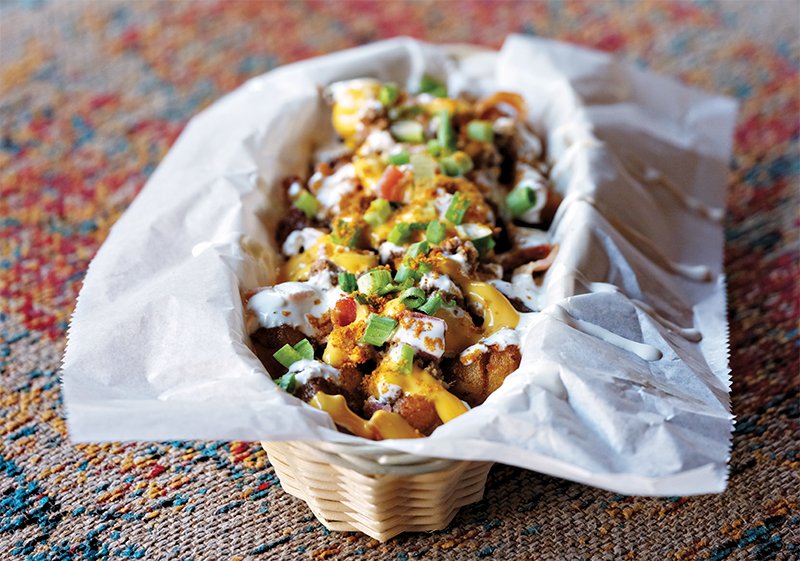
If you're not sure what to order, start with the kelewele, which are spicy fried plantains. If you want to up the ante, order them loaded—they are reminiscent of loaded baked potatoes, but don't taste like them. The loaded version is topped with bacon, scallions, sour cream, cheese, beef, chicken and/or peanuts.
Other items will likely be more familiar, such as khebabs, served with a salad. The beef they use for the khebabs is Delmonico steak, with a spicy Suya rub. The khebabs are also available with chicken, chicken legs, lamb or salmon.
On any given night, when Armah is here and it's busy, you'll see him circulating regularly, welcoming customers and making sure people are happy with their experience. People have lots of questions, as you might imagine. The staff is trained so they can be expert translators of the cuisine to those who are un-familiar. “It's a personal experience.
We're not chastising you for not knowing what you have come in here to eat,” he says, smiling. “We get a lot of culinarily curious people. It's a lot of trust people are putting into me when they come here, that's why I take this personally.”
Coal isn't the sort of place that prioritizes table turnovers; it's more about savoring the experience and chatting with friends. The food is made with attention to detail, which you can't rush. “Some are really like homecooked foods. These are foods that would take about 45 minutes to make for dinner. But if you are ordering apps, and a lot of people do that, you might not even notice,” he says. “Patience is a key ingredient. We're making food that's worth it, that's good for your soul, versus food that's just good in the moment—there's no comparison.”
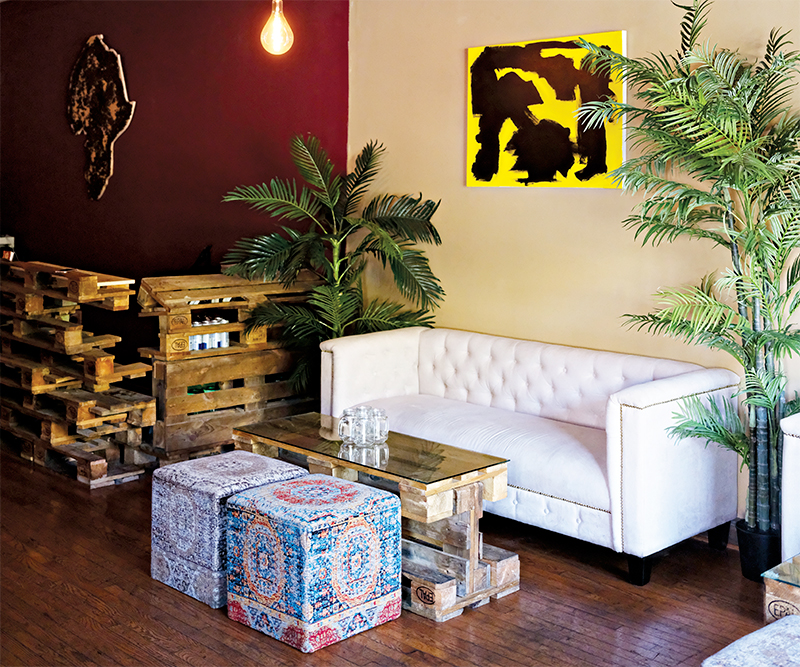
Coal Lounge and Grill
Hours
Tues.–Thurs.: 5–10 p.m.; Fri.: 5–11:45 p.m.; Sat.: 5 p.m.–midnight
“Ethnik Brunch” on the third Sunday of the month from 11 a.m.–3 p.m.
(Note: Coal may be in the process of expanding their hours to include lunch; call or check their Facebook page.)
Closed Monday and most Sundays.
Reservations
Accepted
Parking
Street, parking garages
Payment
Visa, Mastercard, American Express and cash
What to Order
Well, almost anything here is going to feel interesting and perhaps familiar yet unfamiliar. Try the kelewele—that's spicy fried plantains, loaded or unloaded. For something hearty and filling, the stews should fit the bill—the Ampesi Abomu is a traditional stew with spinach and mackerel. The khebabs are very popular, too. Indomie is a brand name of noodles wildly popular in Nigeria, but it's also the name of the dish. (“That's how we name things in Ghana,” he says. It's ramen, given the African treatment.) (Sidenote: Ask about Juko, the spice Armah and Hanna came up with. It's spicy-sweet, reflective of their personalities. “She's the spicy one,” he says.) BYOB!
81 W. Broad St., Bethlehem | 484.456.1192 | coalbethlehem.com







